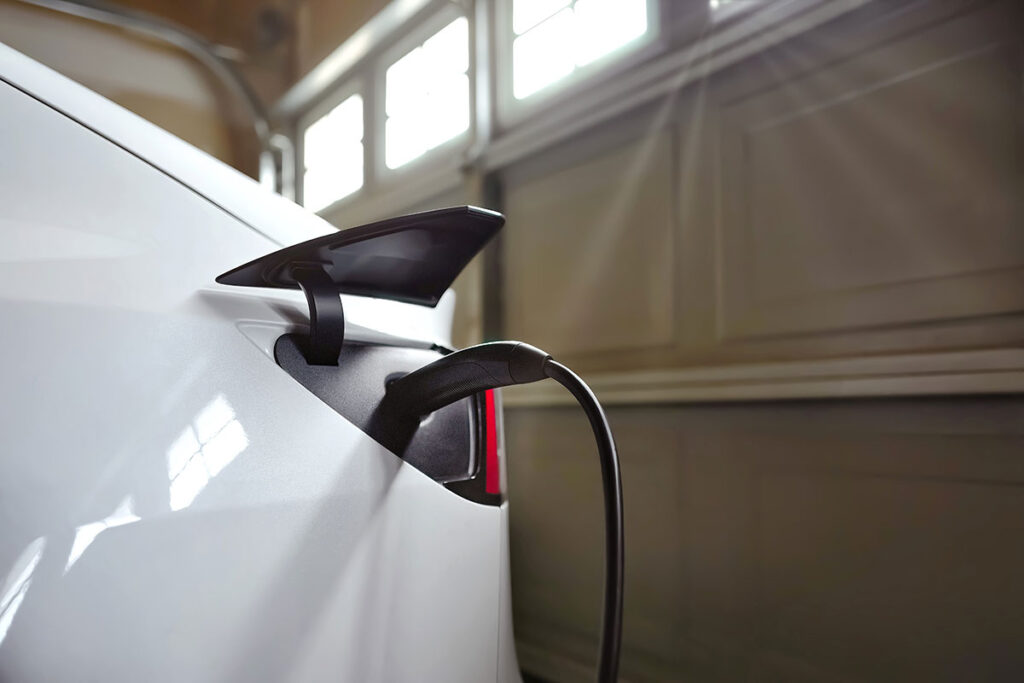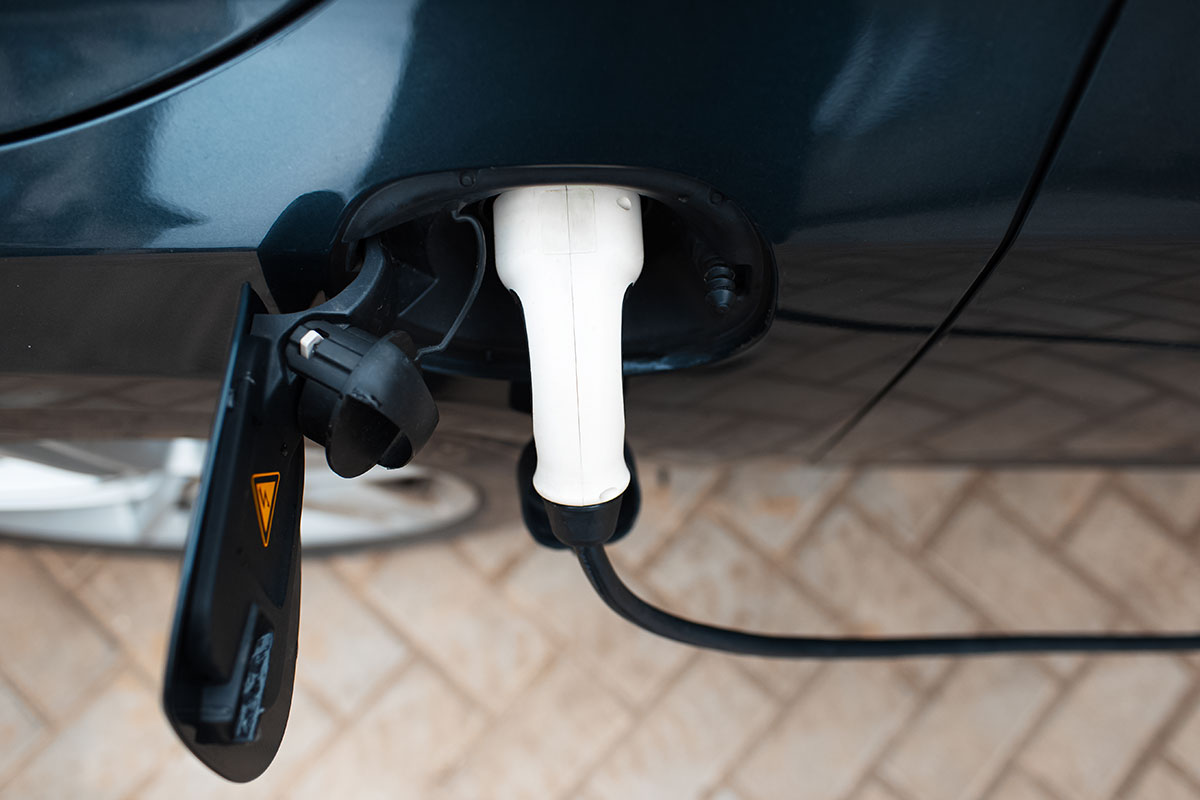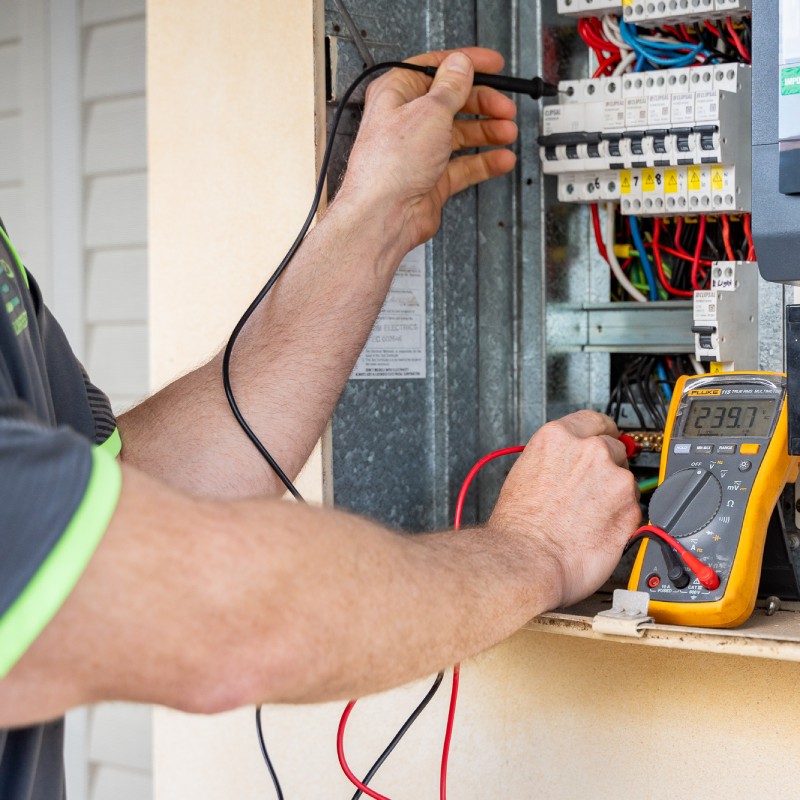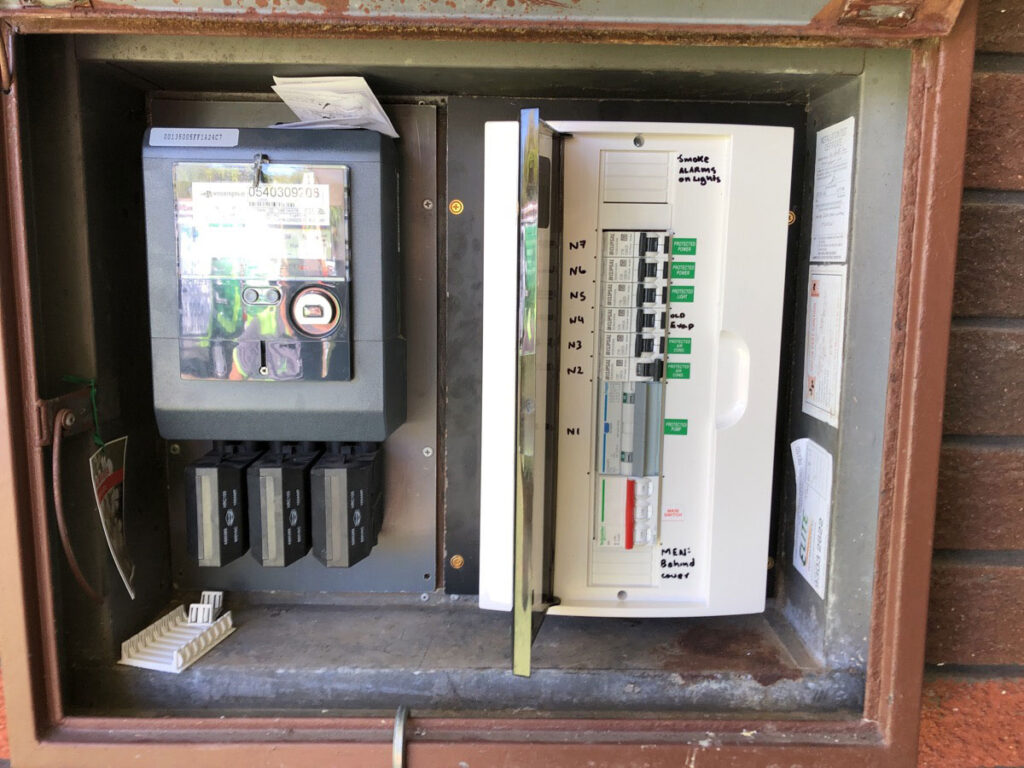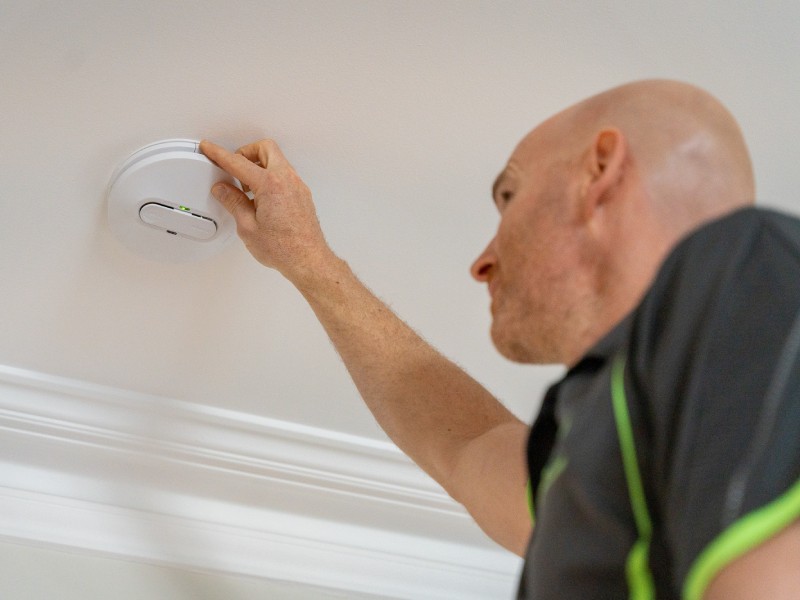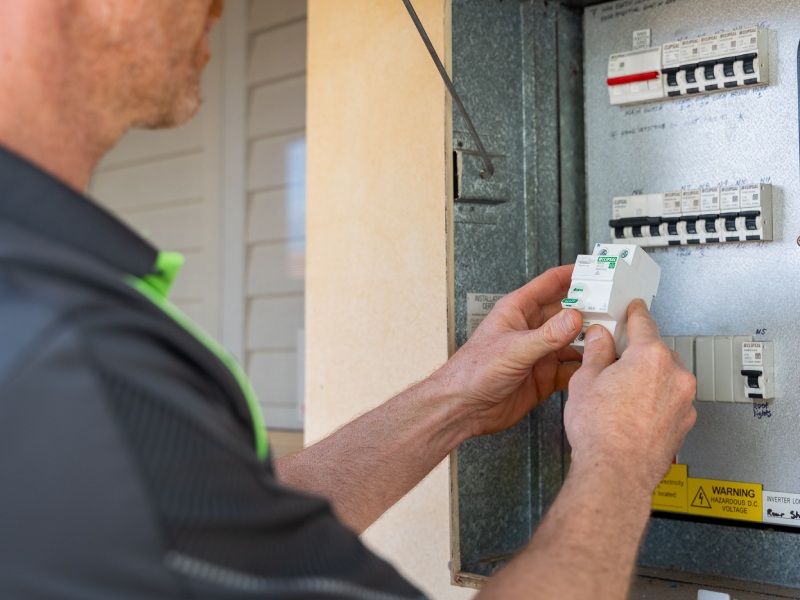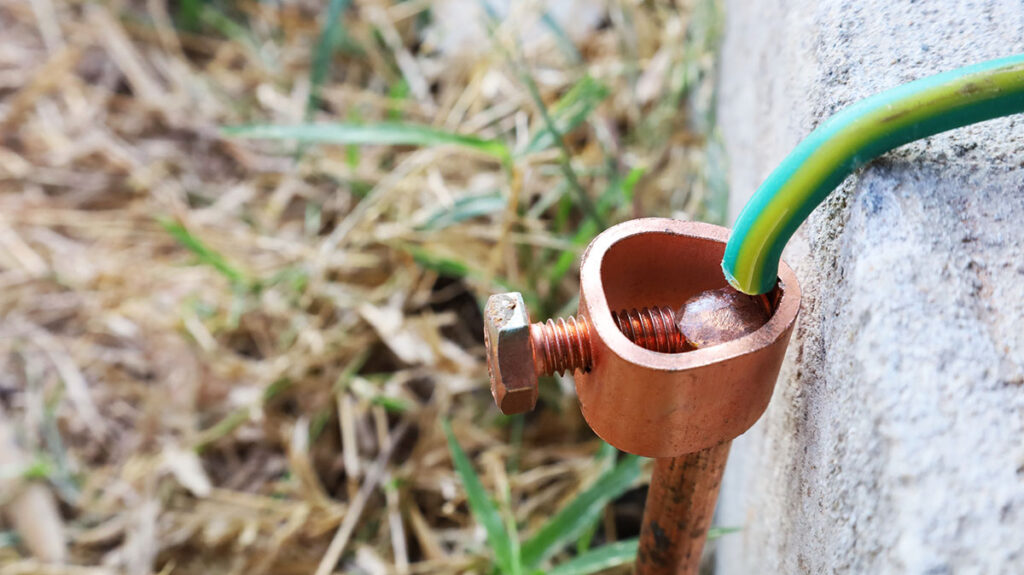If you drive an electric vehicle and are tired of relying on public charging stations, you may be interested in installing a home EV charger.
EV charging at home lets you conveniently charge your vehicle overnight but requires careful planning and proper installation.
We put together this step-by-step guide to help you choose the right home EV charger and learn where to install it.
In this guide:
- Considerations when getting an EV charger at home
- Deciding where to install a home EV charger
- Choosing the right EV charger for your vehicle
- The importance of a licensed electrician for EV charging station installation
What to Consider When Getting an EV Charger At Home
Here are some important factors to consider before getting an EV Charger at home.
Housing and Parking Setup
A home EV charging station will require off-street parking, such as a carport or garage. Without designated off-street parking, you will have to rely on public EV charging stations.
Power Supply and Existing Electrical Infrastructure
Electrical infrastructure and power supply are the most important factors for a home EV charging station.
Your electrical infrastructure must be up to current standards and have enough capacity for an EV charger.
Your home’s existing electrical panel must be able to handle the additional electricity an EV charger will demand. Without proper electrical infrastructure, you risk overload issues for your EV charger and electrical appliances.
It is crucial to have a licensed electrician inspect your home’s electrical infrastructure and determine if it can support an EV charging station. An electrician will assess the service panel’s amperage rating, available circuit breakers, switchboard, and capacity for expansion.
Many homes will require updates to existing wiring, the switchboard, and electrical panels to ensure efficient, reliable, safe EV charging.
Tethered or Untethered
You can choose an EV charger that is tethered, meaning it comes with a fixed length cable cord. You can also opt for an untethered EV charger that does not include a cabling cord. This allows you to purchase cabling cord separately according to the length you need.
Smart Features
Standard EV charging stations use a fixed power rate to charge your electric vehicle. However, you may want added functions or smart features for a more convenient charging experience.
Smart features may include options such as:
- Ability to connect to Bluetooth or WiFi to view live charging statistics
- Solar integration
- Dynamic load balancing and power-sharing
- Scheduled charging times to minimise use peak-usage
- Bidirectional capability
Grid Connection
You will also need to determine if your home has single-phase or three-phase grid connection.
It is important to choose an EV charger that matches your electrical house connection.
- Single Phase — Found in most residences
- Three Phase — More common in commercial properties and larger/modern homes, will charge your EV faster
Tethered or Untethered
You can choose an EV charger that is tethered, meaning it comes with a fixed length cable cord. You can also opt for an untethered EV charger that does not include a cabling cord. This allows you to purchase cabling cord separately according to the length you need.
Smart Features
Standard EV charging stations use a fixed power rate to charge your electric vehicle. However, you may want added functions or smart features for a more convenient charging experience.
Smart features may include options such as:
- Ability to connect to Bluetooth or WiFi to view live charging statistics
- Solar integration
- Dynamic load balancing and power-sharing
- Scheduled charging times to minimise use peak-usage
- Bidirectional capability
Grid Connection
You will also need to determine if your home has single-phase or three-phase grid connection.
It is important to choose an EV charger that matches your electrical house connection.
- Single Phase — Found in most residences
- Three Phase — More common in commercial properties and larger/modern homes, will charge your EV faster
Selecting the Ideal Location for an EV Charger
Selecting the ideal location for an EV charger ensures efficiency, convenience, and safety.
It is crucial to carefully consider aspects such as ventilation, exposure to the elements, and parking habits.
Most homeowners choose to install their EV charger in a carport or garage.
The first step in choosing your home EV charger location is completing a detailed site assessment that considers:
- Is your garage attached or detached?
- Do you always park in the same spot?
- How long of a charging cable will I need? (Most EV charging cables are 5 metres long but you can find 7 or 10 metre cables if needed)
- Is there a solid structure to mount the EV charger to?
- Where is the charging port on your EV?
- Is the EV charger rated for outdoor or indoor use?
- How far is the charger from the switchboard?
Here are our recommendations for choosing where to install a home EV charger:
- Make sure it will be protected from the elements, such as excessive UV rays and rain to help prevent premature wear and tear
- Ensure the charger will be protected from extreme temperatures
- Install the EV charger as close to the service panel as possible to cut down on costs and reduce wiring distance
- Make sure there will be enough space next to the EV charger to coil and organize the wiring to keep it safe and tidy
Types of EV Chargers for Home
There are three main types of EV chargers for homes: Level 1, Level 2, and DC fast chargers.
- Level 1 Chargers:
- Provide a slow charge
- Most basic type
- Can be plugged into a standard 120V electrical outlet
- Ideal for overnight recharging and electrical vehicles that are used for short commutes or local errands
- Level 2 Chargers:
- More powerful than Level 1 chargers
- Provide faster charging times but require professional ev charger installation
- Require a 240V electrical outlet
- Ideal for longer trips or owners who need the ability to quickly recharge their EV
- DC Fast Chargers:
- Fastest charging time but require significant electrical infrastructure
- Typically utilised in public charging stations
- Ideal for long journeys and travellers
EV Charging and Solar
EV charging and solar are well-suited to use together. If you have a residential solar system, you may be able to use excess solar power to charge your electric vehicle.
A residential solar battery will allow you to store excess energy generated and use it at night to charge your EV.
Ready To Install Your EV Charging Station?
If you are interested in a home EV charging station but aren’t sure if your switchboard or electrical infrastructure will support it, contact Limelight Electrix for a free consultation.
If you are considering a switchboard upgrade in Perth, our licensed electricians can evaluate your current setup and give you a free quote for an upgrade.
We’ve upgraded hundreds of switchboards throughout the many Perth suburbs we service. Contact us with any questions or to book your on-site consultation.


